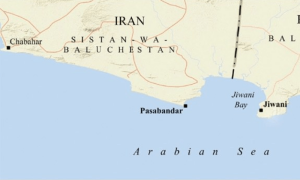Antibiotic stewardship programmes (ASPs) are the heart of interventions designed to combat antibiotic misuse and promote proper infection control at healthcare institutes throughout the world.
Major strategies for ASPs include pre-authorisation of certain antimicrobial agents, formulary restriction of others and prospective audit with feedback, prescribing guidelines and, most importantly, awareness campaigns designed to educate healthcare personnel and the general public about the risks of irrational and excessive antibiotic use.
ASPs have shown a major impact on infection rates, resistance patterns, costs and clinical outcomes in many studies.
Given ASPs’ proven efficacy and major gains in many settings, it is imperative that such initiatives and efforts be implemented across Pakistan. Unfortunately, here, ASP initiatives have only recently been started and there is little to no published literature about antibiotic stewardship within Pakistan.
In March 2014, the Medical Microbiology and Infectious Diseases Society of Pakistan (MMIDSP) launched the Antibiotic Stewardship Initiative in Pakistan (ASIP) and initiated many ASP activities (talks, workshops, initiation of weekly ‘ASP Rounds’, awareness raising) that led to the inculcation of ASPs in many institutions in major Pakistani cities. A survey was carried out by MMIDSP among 757 general practitioners, paediatricians and other clinicians from September 2015 to May 2016 to gauge opinion on this (ASIP) initiative.
Among those who returned the survey forms, 392 GPs and paediatricians (51.8 percent) answered on the usefulness of this activity and 495 (65.4 percent) also suggested measures to combat antibiotic misuse and antimicrobial resistance (AMR) in Pakistan.
The results were startling. Only:
• 20.2 percent (one in five) of these 495 respondents suggested using ASPs to cull the epidemic of antibiotic abuse
• 19.4 percent suggested a national and local antibiotic policy, with regulation and a ban on over-the-counter antibiotic use
• 14.5 percent suggested awareness campaigns to educate GPs and the community about the dangers of antibiotic abuse
• 12.5 percent suggested continuous medical education (CME) activities on the subject for health practitioners
• 8.9 percent suggested taking appropriate history, examination and diagnostic tests before prescribing antibiotics
• 8.3 percent suggested use of specific guidelines for antibiotic use against infectious diseases
These are alarmingly low numbers, which, to this writer, suggest a fundamental and systematic lack of formal education about global practices of antibiotic stewardship and infection control rampant among the Pakistani medical community.
The same survey, however, also noted that up to 98 percent of the respondents felt that the ASIP-related educational activities were very helpful and 91 percent reported that it would change their clinical practice, which reiterates the importance of awareness campaigns and education on the subject.
A survey of 11 major hospitals (five private and six public) in large cities carried out by MMIDSP over three months (January-April 2016), showed:
• All five private but none of the public hospitals had some form of ASPs
• 18 infectious disease (ID) physicians were available at the five private hospitals compared to no ID
specialist at the public hospitals
• Targeted APS activities were carried out at three out of five private and zero out of six public
hospitals
Again, alarming numbers, made more concerning when we note lack of standardisation of quality metrics when it comes to defining what a state-of-the-art ASP might be.
— Compiled from Situation Analysis Report on Antimicrobial Resistance in Pakistan: Findings and Recommendations for Antibiotic Use and Resistance presented by Dr Ejaz A. Khan
Published in Dawn, EOS, February 2nd, 2020

















































Dear visitor, the comments section is undergoing an overhaul and will return soon.